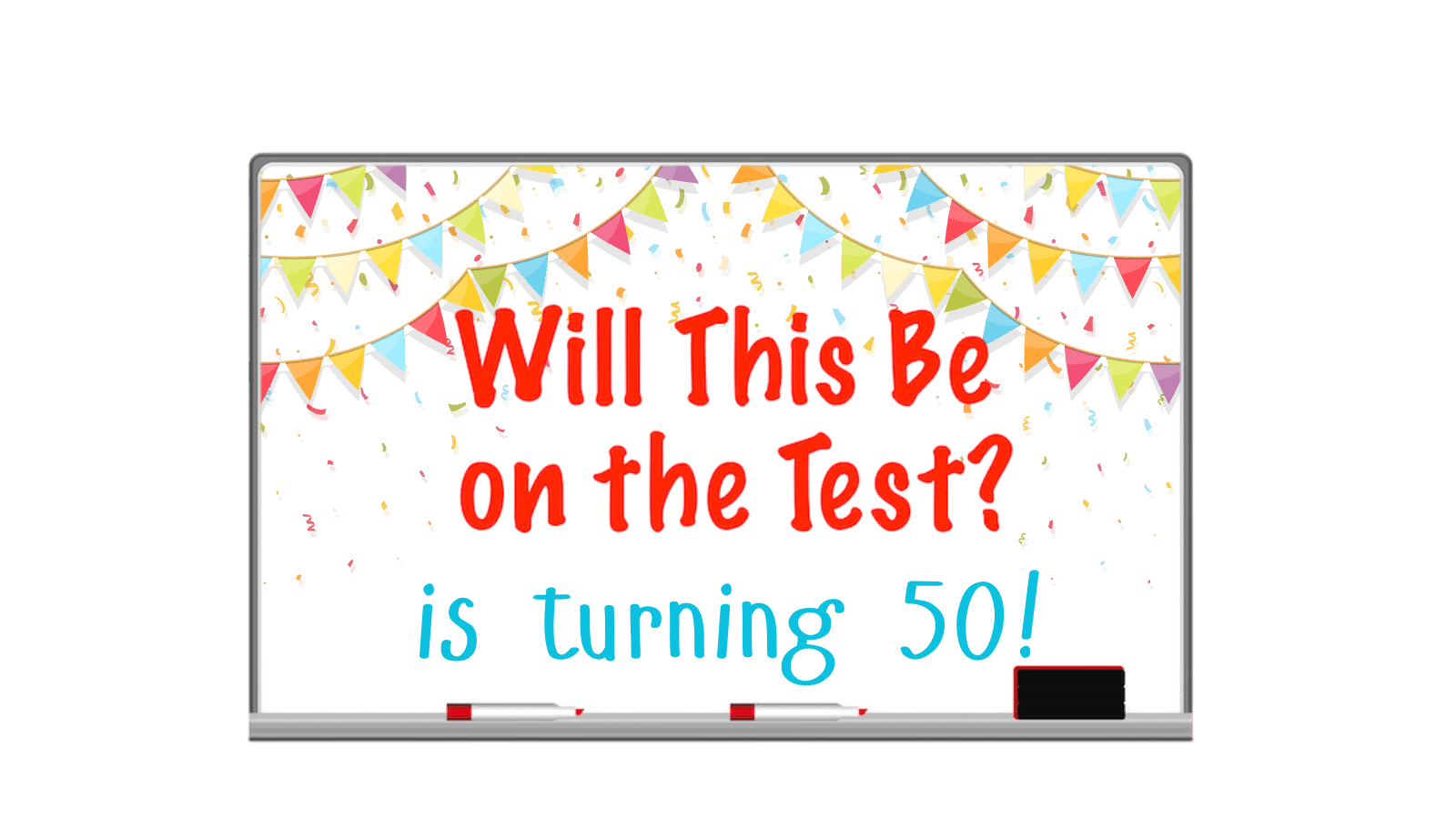
by Aren Lew Welcome to the 50th edition of our monthly series, “Will This Be on the Test?” Each month, we’ll feature a new question similar to something adult learners might see on a high school equivalency test and a discussion of how one might go about tackling the problem conceptually. Welcome back to our continuing exploration of how to bring real conceptual reasoning to questions students might encounter on a standardized test. Working with percents is a topic that I’ve always found students to be eager to learn about. » Read more
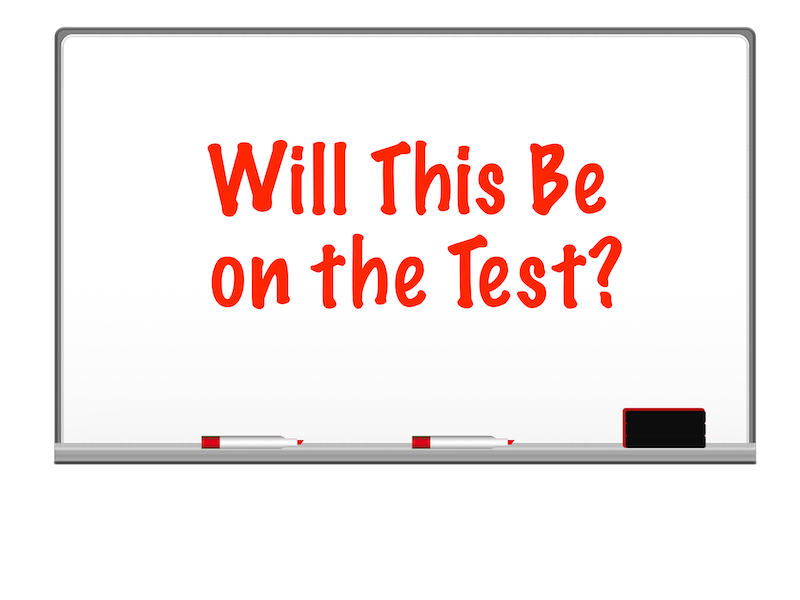
by Aren Lew Welcome to the latest installment of our monthly series, “Will This Be on the Test?” Each month, we’ll feature a new question similar to something adult learners might see on a high school equivalency test and a discussion of how one might go about tackling the problem conceptually. Welcome back to our continuing exploration of how to bring real conceptual reasoning to questions students might encounter on a standardized test. Did you know that the EMPower™ series includes a set of test practice questions with each lesson? » Read more

by Aren Lew Welcome to the latest installment of our monthly series, “Will This Be on the Test?” Each month, we’ll feature a new question similar to something adult learners might see on a high school equivalency test and a discussion of how one might go about tackling the problem conceptually. Welcome back to our continuing exploration of how to bring real conceptual reasoning to questions students might encounter on a standardized test. This month’s task comes from HSE Practice Test Questions based on the Taxi Cab Problem, » Read more
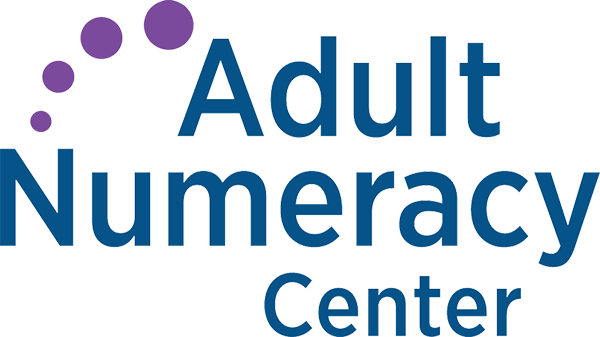
by Aren Lew The story you are about to read is true(ish). The names have been changed to protect those whose formal math education misled them to believe that memorized procedures are more valuable than their own reasoning. Picture the scene … a middle school math classroom somewhere in America circa 1987: Richard sits at his desk. At the board, the teacher demonstrates how to set up a proportion by setting two ratios equal to each other. » Read more

by Aren Lew Welcome to the latest installment of our monthly series, “Will This Be on the Test?” Each month, we’ll feature a new question similar to something adult learners might see on a high school equivalency test and a discussion of how one might go about tackling the problem conceptually. Welcome back to our continuing exploration of how to bring real conceptual reasoning to questions students might encounter on a standardized test. Reading and making sense of charts and graphs is important on the math section of high school equivalency and other standardized tests, » Read more

by Jean Oviatt-Rothman Building a strong and supportive classroom community is essential for students to feel a sense of belonging and safety. This sense of belonging and safety allows students to thrive, take academic risks, share their ideas and strategies, or propose different ways of seeing and solving problems. Building a classroom community among online learners can feel daunting when teaching remotely. I teach in a fully online adult education program, serving students all over the state who come together with me for two 90-minute STEM classes per week. » Read more

by Aren Lew Welcome to the latest installment of our monthly series, “Will This Be on the Test?” Each month, we’ll feature a new question similar to something adult learners might see on a high school equivalency test and a discussion of how one might go about tackling the problem conceptually. Welcome back to our continuing exploration of how to bring real conceptual reasoning to questions students might encounter on a standardized test. It’s chilly here in Massachusetts as I’m writing this, » Read more

by Aren Lew One of my favorite mathematical college memories is of a math test. (Yes, you read that right. I have a cherished memory of a math test.) We had a week-long test my professor called a “pyramid exam.” On Monday, we worked on our own on the test for the whole class period. It was hard! My professor let us know that it was much too hard and too much work for us to complete in one class period, » Read more

by Aren Lew Welcome to the latest installment of our monthly series, “Will This Be on the Test?” Each month, we’ll feature a new question similar to something adult learners might see on a high school equivalency test and a discussion of how one might go about tackling the problem conceptually. Welcome back to our continuing exploration of how to bring real conceptual reasoning to questions students might encounter on a standardized test. Here’s a classic to start the new year. » Read more
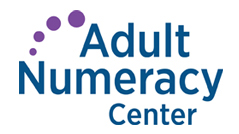
by Connie Rivera Dr. Brooke Istas is an instructor of Mathematics for Cowley College since Fall 2014. Prior to accepting the position, she acted as the Instructional Coordinator and a Mathematics Instructor for the Cowley College Adult Education and College Preparation Program. She is also the online moderator for the U.S. Department of Education, Office of Career, Technical and Adult Education (OCTAE), Literacy Information and Communication System’s (LINCS) Community of Practice for both Math and Numeracy and Correctional and Reentry Education communities. » Read more

by Sarah Lonberg-Lew Welcome to the latest installment of our monthly series, “Will This Be on the Test?” Each month, we’ll feature a new question similar to something adult learners might see on a high school equivalency test and a discussion of how one might go about tackling the problem conceptually. Welcome back to our continuing exploration of how to bring real conceptual reasoning to questions students might encounter on a standardized test. Teachers preparing students for an HSE test may choose to spend their geometry time on learning to identify and apply the formulas on the formula page. » Read more

by Sarah Lonberg-Lew Welcome to the latest installment of our monthly series, “Will This Be on the Test?” Each month, we’ll feature a new question similar to something adult learners might see on a high school equivalency test and a discussion of how one might go about tackling the problem conceptually. Welcome back to our continuing exploration of how to bring real conceptual reasoning to questions students might encounter on a standardized test. One question that comes up often when I am talking with teachers is deciding how much time to devote to learning how to do fractions on the calculator and how much time to devote to learning fraction reasoning. » Read more

Helping students develop meaningful fluency in algebraic notation can help them apply their reasoning skills and can decrease “algebra anxiety,” as the symbols and grammar start to become meaningful and familiar. Melissa Braaten has created a three-part resource that reviews the meaning of notation in algebra, discusses some common student misunderstandings, and offers teaching strategies for promoting lasting student comprehension. Download the Teaching Algebraic Notation PDF Resource Part 1 discusses how to help students transition from arithmetic notation for multiplication and division to multiplication and division notation more commonly used in algebra. » Read more

by Sarah Lonberg-Lew Welcome to the latest installment of our monthly series, “Will This Be on the Test?” Each month, we’ll feature a new question similar to something adult learners might see on a high school equivalency test and a discussion of how one might go about tackling the problem conceptually. Welcome back to our continuing exploration of how to bring real conceptual reasoning to questions students might encounter on a standardized test. This month’s question involves decimals. » Read more

We know all about the overwhelm that can happen as teachers and students return to class after a long break. There’s so much to plan and organize, not to mention getting to know plenty of new students with various educational backgrounds and needs. Let us help you with that! Over the years, our team has developed a treasure trove of free materials and resources that anyone can download, including ones with ready-to-teach lessons and tips for implementing regular math routines. » Read more

by Sarah Lonberg-Lew Welcome to the latest installment of our monthly series, “Will This Be on the Test?” Each month, we’ll feature a new question similar to something adult learners might see on a high school equivalency test and a discussion of how one might go about tackling the problem conceptually. Welcome back to our continuing exploration of how to bring real conceptual reasoning to questions students might encounter on a standardized test. I recently saw a video on YouTube that purported to “teach” students how to find the equation of a line in slope-intercept form given two points by using a TI-30XS (the calculator provided for the GED). » Read more

Photo by Pavel Danilyuk by Melissa Braaten Why Games? Almost every culture in the world has used mathematical and spatial reasoning for recreation. In other words, humans use math for fun, and all adult learners deserve to have access to recreational math for this reason, in addition to other educational benefits. Dice, card, and board games often employ important reasoning skills and encourage the use of strategy and self-reflection, or metacognition, to decide whether the strategy one is using could be improved. » Read more

by Sarah Lonberg-Lew Welcome to the latest installment of our monthly series, “Will This Be on the Test?” Each month, we’ll feature a new question similar to something adult learners might see on a high school equivalency test and a discussion of how one might go about tackling the problem conceptually. Welcome back to our continuing exploration of how to bring real conceptual reasoning to questions students might encounter on a standardized test. This month we’re back in the realm of fractions—the topic that seems to trouble possibly more teachers and students than any other. » Read more

by Nancy Ishihara Asian-Pacific American Heritage Month (sometimes known as Asian American and Pacific Islander Heritage Month) is an annual celebration of Americans with Asian or Pacific Islander ancestry.[1] The month of May was chosen to coincide with the first Japanese immigrant, Manjiro, arriving in Massachusetts on a whaling ship captained by John Whitfield in May of 1843, [2] as well as the completion of the transcontinental railroad in May of 1869, » Read more

by Sarah Lonberg-Lew Welcome to the latest installment of our monthly series, “Will This Be on the Test?” Each month, we’ll feature a new question similar to something adult learners might see on a high school equivalency test and a discussion of how one might go about tackling the problem conceptually. Welcome back to our continuing exploration of how to bring real conceptual reasoning to questions students might encounter on a standardized test. One common experience for adult numeracy teachers, » Read more

by Zuzka Blasi My favorite acronym in the math classroom is Mistakes Allow Thinking to Happen. I want my students to make mistakes and see the value in those mistakes. One way I encourage this attitude is Wrong Answers Only, a powerful and simple discussion activity that elicits generalizations and pushes students to think in a different way about math problems. By encouraging students to supply and explain incorrect answers, you can push them to change their problem solving stance from a focus on rote calculation to a consideration of the problem space. » Read more

by Sarah Lonberg-Lew Welcome to the latest installment of our monthly series, “Will This Be on the Test?” Each month, we’ll feature a new question similar to something adult learners might see on a high school equivalency test and a discussion of how one might go about tackling the problem conceptually. Welcome back to our continuing exploration of how to bring real conceptual reasoning to questions students might encounter on a standardized test. Here is this month’s question: How can you approach this question in a way that makes sense to you? » Read more

by Sarah Lonberg-Lew Does every math question have a single right answer? Many people would say yes. In fact, that’s one thing that I’ve heard people say that they love about math. There’s no ambiguity. It’s not a matter of opinion. The answer to 2 + 2 is 4 and that’s the end of the story. It’s clean and clear. In my work, my colleagues and I promote a different view of math—that it is a flexible, » Read more

by Sarah Lonberg-Lew Welcome to the latest installment of our monthly series, “Will This Be on the Test?” Each month, we’ll feature a new question similar to something adult learners might see on a high school equivalency test and a discussion of how one might go about tackling the problem conceptually. Welcome back to our continuing exploration of how to bring real conceptual reasoning to questions students might encounter on a standardized test. Last month we looked at finding the mean of data given in a frequency table. » Read more

by Mercedez Casciato & Sarah Lonberg-Lew To translate parts of this blog into your native language, visit Google Translate. Para traducir partes de este blog a su idioma nativo, visite Google Translate. As colleagues in the SABES Math and Numeracy Center, we (Mercedez Casciato and Sarah Lonberg-Lew) worked together to compile resources for Women’s History Month. In the course of our conversations, we reflected on our own experiences as women in mathematics. » Read more

by Sarah Lonberg-Lew Welcome to the latest installment of our monthly series, “Will This Be on the Test?” Each month, we’ll feature a new question similar to something adult learners might see on a high school equivalency test and a discussion of how one might go about tackling the problem conceptually. Welcome back to our continuing exploration of how to bring real conceptual reasoning to questions students might encounter on a standardized test. This month, » Read more

by Melissa Braaten For years, I struggled giving homework: what to give students, how much, how to grade or value it. I found I was spending a lot of time creating or searching for assignments that felt meaningful, only to have a very small portion of my students complete it outside of class. In addition, I had a lot of students with different learning challenges, who struggled with many aspects of homework: how to understand the directions, » Read more

by Sarah Lonberg-Lew Welcome to the latest installment of our monthly series, “Will This Be on the Test?” Each month, we’ll feature a new question similar to something adult learners might see on a high school equivalency test and a discussion of how one might go about tackling the problem conceptually. Welcome back to our continuing exploration of how to bring real conceptual reasoning to questions students might encounter on a standardized test. Here is this month’s question: How can you approach this question in a way that makes sense to you? » Read more

by Sarah Lonberg-Lew Welcome to the latest installment of our monthly series, “Will This Be on the Test?” Each month, we’ll feature a new question similar to something adult learners might see on a high school equivalency test and a discussion of how one might go about tackling the problem conceptually. Welcome back to our continuing exploration of how to bring real conceptual reasoning to questions students might encounter on a standardized test. Here is this month’s question: How can you approach this question in a way that makes sense to you? » Read more
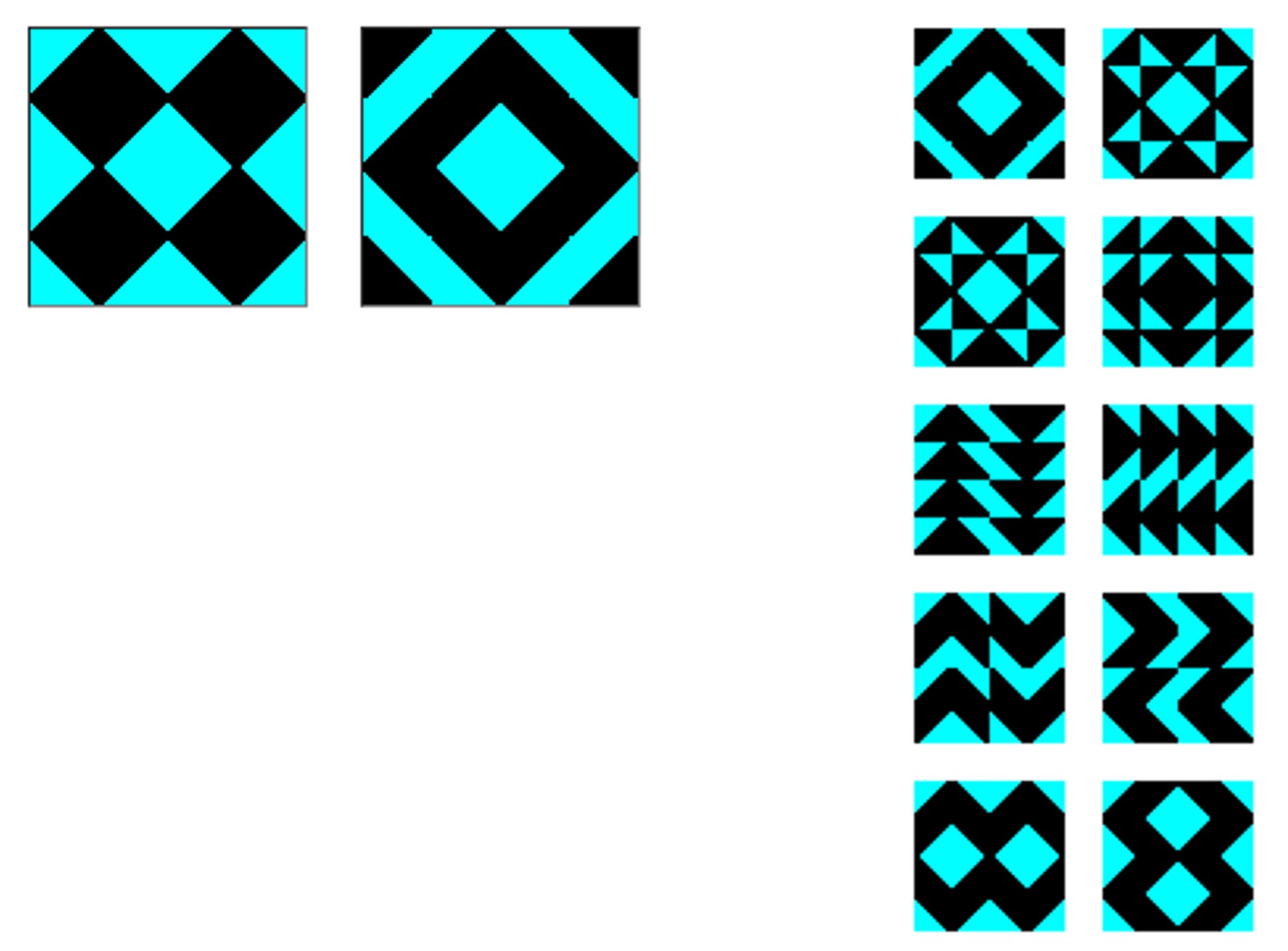
by Mark Trushkowsky Last month I wrote a blog about Dr. Minerva Cordero and the sense of connection and belonging I felt when I learned about a mathematician who shares an aspect of my identity. I wanted to share another aspect of my journey and write about Dr. Cordero’s work in mathematics. My wife used to work in exhibit design, designing informational spaces like museums or aquariums. They used a framework called “the 5 Ss” » Read more

by Sarah Lonberg-Lew Welcome to the latest installment of our monthly series, “Will This Be on the Test?” Each month, we’ll feature a new question similar to something adult learners might see on a high school equivalency test and a discussion of how one might go about tackling the problem conceptually. Welcome back to our continuing exploration of how to bring real conceptual reasoning to questions students might encounter on a standardized test. Here is this month’s question: How can you approach this question in a way that makes sense to you? » Read more

by Mark Trushkowsky The Mathematician Project I first learned about Dr. Minerva Cordero during a SABES workshop led by Pam Meader called Celebrating the Diversity of Mathematical Minds.* During that workshop, Pam and her co-facilitator Deb Snyder talked about The Mathematician Project. The Mathematician Project is a practice that began in a Minneapolis, when then-middle school math teacher Annie Perkins decided to take 15-20 minutes a week (10-15 for research and 5 minutes of class time) to share a photograph and brief biography of a mathematician that shared aspects of identity with her students. » Read more

by Sarah Lonberg-Lew Welcome to the latest installment of our monthly series, “Will This Be on the Test?” Each month, we’ll feature a new question similar to something adult learners might see on a high school equivalency test and a discussion of how one might go about tackling the problem conceptually. Welcome back to our continuing exploration of how to bring real conceptual reasoning to questions students might encounter on a standardized test. Here is this month’s question: How can you approach this question in a way that makes sense to you? » Read more

by Pam Meader September marks the start of school, the end of summer vacations, and the coming of fall. It also marks the celebration of National Hispanic Heritage month which is September 15 through October 15. While our math team truly believes that people’s accomplishments should be celebrated all year long, it is still worthwhile and wonderful to focus on our communities that often are overlooked. In preparing a resource sheet for teachers to utilize during this month, » Read more

by Sarah Lonberg-Lew Welcome to the latest installment of our monthly series, “Will This Be on the Test?” Each month, we’ll feature a new question similar to something adult learners might see on a high school equivalency test and a discussion of how one might go about tackling the problem conceptually. Welcome back to our continuing exploration of how to bring real conceptual reasoning to questions students might encounter on a standardized test. Here is this month’s question: How can you approach this question in a way that makes sense to you? » Read more
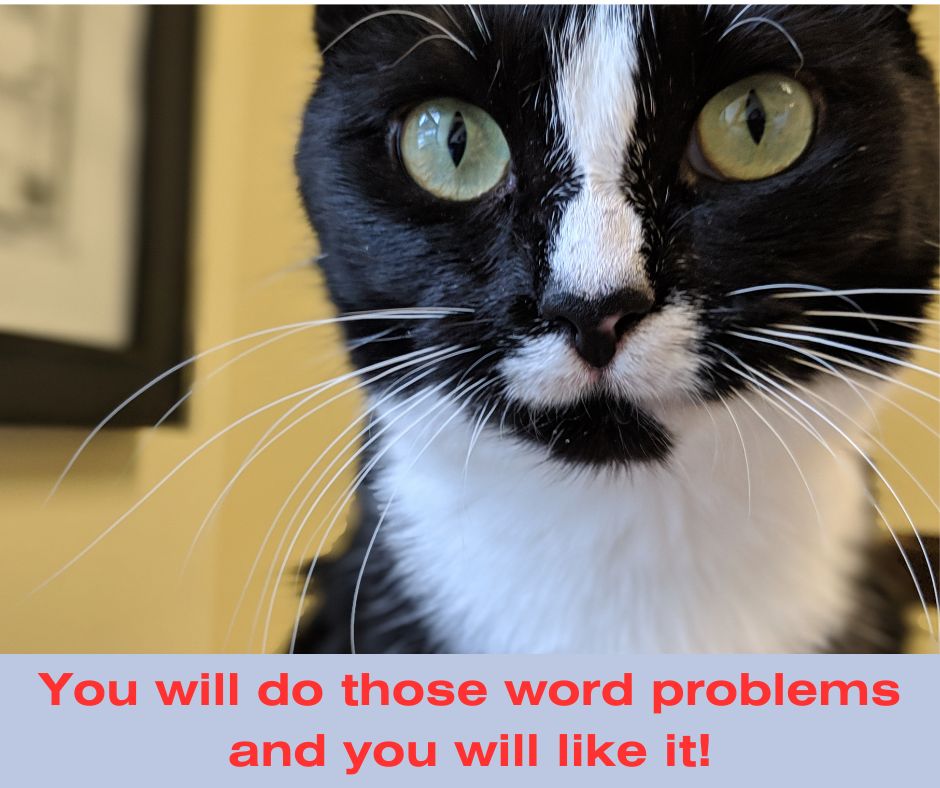
Hang in there! by Linda Ramirez Why math? “You want me to teach what? Math? But I am an English language teacher. How dare you!” These were the thoughts I had when I went into momentary shock after accepting an offer to teach adult international English language (EL) students in the Adult Education Department of a state community college in Massachusetts. Upon hire, I quickly learned that I would be expected to teach English language reading, » Read more

by Jill O’Loughlin Which feeling is worse? Standing at the front of a classroom that is a sea of blank stares when you have just asked a math question or Sitting in a math class feeling completely lost, not only unable to find the answer to the problem, but not even knowing where to begin to make sense of the question The Impact of the Imposter Syndrome I think we can all agree the two choices above are both disappointing scenarios, » Read more

by Sarah Lonberg-Lew Welcome to the latest installment of our monthly series, “Will This Be on the Test?” Each month, we’ll feature a new question similar to something adult learners might see on a high school equivalency test and a discussion of how one might go about tackling the problem conceptually. Welcome back to our continuing exploration of how to bring real conceptual reasoning to questions students might encounter on a standardized test. Here is this month’s problem: How can you approach this question in a way that makes sense to you? » Read more
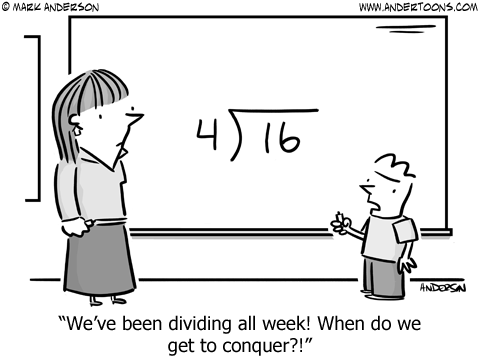
by Sarah Lonberg-Lew I once had a student show me a mnemonic for the steps of long division: Dad, Mom, Sister, Brother, Cat for Divide, Multiply, Subtract, Bring down, Check. This would never have worked for me because I couldn’t remember the order the family members were to be listed in and what kind of pet they had! (Not to mention the added cognitive load for any student whose family doesn’t look like the one in the mnemonic.) To me, » Read more

by Sarah Lonberg-Lew Welcome to the latest installment of our monthly series, “Will This Be on the Test?” Each month, we’ll feature a new question similar to something adult learners might see on a high school equivalency test and a discussion of how one might go about tackling the problem conceptually. Welcome back to our continuing exploration of how to bring real conceptual reasoning to questions students might encounter on a standardized test. Here is this month’s problem: How can you approach this question in a way that makes sense to you? » Read more

by Lakshmi Nayak A friend with diabetes recently told me, “If you don’t have a health threat in your life, it’s difficult to make changes. If you are diagnosed with diabetes it’s easier to make changes because the threat, and the need, is right in front of you. But if you are pre-diabetic or have family members with diabetes, you have a chance to change your lifestyle before you get irreversible diabetes. Think of pre-diabetes (or having high risk factors) as a chance to change.” If you actually have diabetes, » Read more

by Sarah Lonberg-Lew Welcome to the latest installment of our monthly series, “Will This Be on the Test?” Each month, we’ll feature a new question similar to something adult learners might see on a high school equivalency test and a discussion of how one might go about tackling the problem conceptually. Welcome back to our continuing exploration of how to bring real conceptual reasoning to questions students might encounter on a standardized test. Here is this month’s problem: How can you approach this question in a way that makes sense to you? » Read more

by Sarah Lonberg-Lew Photo by Marco Verch under Creative Commons 2.0 For so many students, math is something they have to get through to reach their next steps. For many teachers, math is something they have to teach because students need to learn it, but it isn’t fun and engaging like reading and writing, or relevant and interesting like social studies and science. So, to help us all survive the ordeal of teaching and learning math, » Read more

by Sarah Lonberg-Lew Welcome to the latest installment of our monthly series, “Will This Be on the Test?” Each month, we’ll feature a new question similar to something adult learners might see on a high school equivalency test and a discussion of how one might go about tackling the problem conceptually. Welcome back to our continuing exploration of how to bring real conceptual reasoning to questions students might encounter on a standardized test. Here is this month’s problem: How can you approach this question in a way that makes sense to you? » Read more

by Pam Meader Recently, my grandsons visited me and one of their requests when they visit is to watch a cartoon show called Stinky and Dirty. If you haven’t listened to the show, each episode revolves around a problem that Stinky (the garbage truck) and Dirty (the bulldozer) must solve. I kept hearing, “What if…” throughout the 30 minute show as Dirty proposes a solution and they experiment to see if it works. » Read more

by Sarah Lonberg-Lew Welcome to the latest installment of our monthly series, “Will This Be on the Test?” Each month, we’ll feature a new question similar to something adult learners might see on a high school equivalency test and a discussion of how one might go about tackling the problem conceptually. Welcome back to our continuing exploration of how to bring real conceptual reasoning to questions students might encounter on a standardized test. This month let’s dive into the surprisingly rich topic of the area and perimeter of rectangles. » Read more

by Sarah Lonberg-Lew When I was learning to be a teacher, I was taught the “I do, we do, you do” approach as a way of easing students into material and gradually releasing responsibility to the students. This was reinforced for me in different teaching jobs where professional development trainers extolled it as the best frame for teaching and learning. I’ve got to say, though, that when I used it myself, I found it serviceable, but not thrilling (for me or for my students). » Read more

by Sarah Lonberg-Lew Welcome to the latest installment of our monthly series, “Will This Be on the Test?” Each month, we’ll feature a new question similar to something adult learners might see on a high school equivalency test and a discussion of how one might go about tackling the problem conceptually. Welcome back to our continuing exploration of how to bring real conceptual reasoning to questions students might encounter on a standardized test. One year ago, » Read more

by Donna Curry Does anybody really know what time it is? That’s a question posed by the band Chicago in 1969, and I have been pondering that question ever since. Why am I bringing this up now? Two reasons. First, all of us have recently gone through one more choreographing of all our clocks, moving out of daylight savings time. If you’re like me, it feels artificial for the sun to set at 5:30 one evening and 4:30 the next. » Read more

by Sarah Lonberg-Lew Welcome to the latest installment of our monthly series, “Will This Be on the Test?” Each month, we’ll feature a new question similar to something adult learners might see on a high school equivalency test and a discussion of how one might go about tackling the problem conceptually. Welcome back to our continuing exploration of how to bring real conceptual reasoning to questions students might encounter on a standardized test. Here is this month’s problem: How can you approach this question in a way that makes sense to you? » Read more

by Melissa Braaten I remember being taught rounding as a simple, mechanical procedure. Find the place value to the left.If it is a 5 or higher, round up. Otherwise, round down. I also remember something about a balloon: hold the balloon in your hand. If you open 0, 1, 2, 3, or 4 fingers, the balloon stays put. Once you open 5 fingers, it floats up. (Quite a nice visual mnemonic). Unfortunately, these steps and mnemonics did not prepare me to use rounding very effectively in the real world. Neither the procedure (nor the balloon) makes any reference to why 5 has this magical quality of going up, » Read more

by Sarah Lonberg-Lew Welcome to the latest installment of our monthly series, “Will This Be on the Test?” Each month, we’ll feature a new question similar to something adult learners might see on a high school equivalency test and a discussion of how one might go about tackling the problem conceptually. Welcome back to our continuing exploration of how to bring real conceptual reasoning to questions students might encounter on a standardized test. Here is this month’s problem: How can you approach this question in a way that makes sense to you? » Read more

by Donna Curry I decided to run for Selectboard member in my little town, thinking I could do so without having to become a politician. Wrong! But, I did learn some unexpected things in the process. At first, I balked at knocking on doors – just as politicians are probably doing in your neighborhood this fall. I was informed that I should not only knock on doors but also keep tabs on the responses I received because that data would be used just before the election. (Luckily, » Read more

by Sarah Lonberg-Lew Welcome to the latest installment of our monthly series, “Will This Be on the Test?” Each month, we’ll feature a new question similar to something adult learners might see on a high school equivalency test and a discussion of how one might go about tackling the problem conceptually. Welcome back to our continuing exploration of how to bring real conceptual reasoning to questions students might encounter on a standardized test. Here is this month’s problem: How can you approach this question in a way that makes sense to you? » Read more
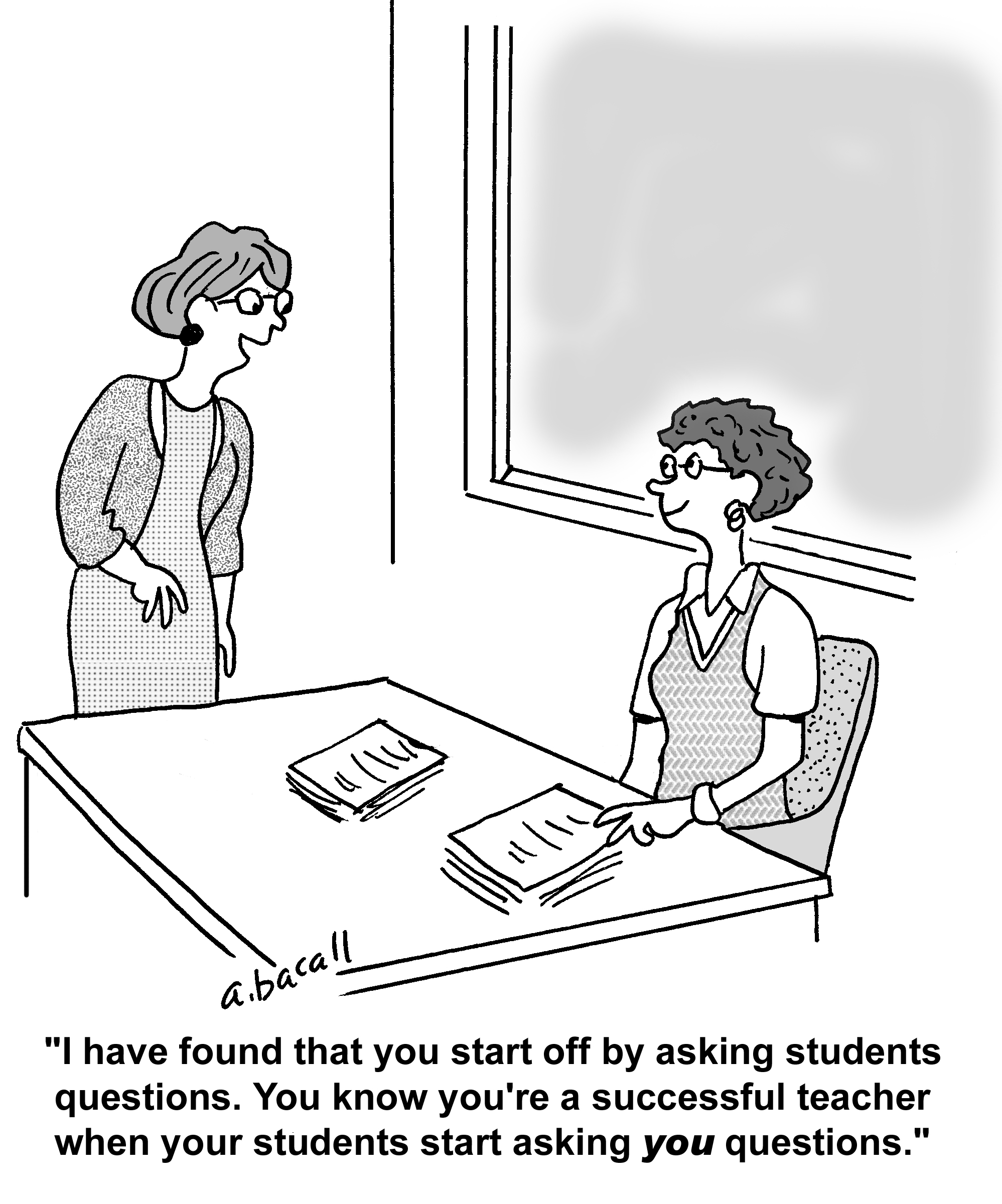
by Melissa Braaten One of the most common questions I get from teachers who attend our trainings is how to get students to accept learning math a new way. “My students expect drills and workbooks,” teachers explain. “How do I get them to be open to trying this new approach?” This is an excellent question. As adult educators, we know that our students have to be open and invested in their learning for it to be effective. » Read more

by Sarah Lonberg-Lew Welcome to the latest installment of our monthly series, “Will This Be on the Test?” Each month, we’ll feature a new question similar to something adult learners might see on a high school equivalency test and a discussion of how one might go about tackling the problem conceptually. After a summer hiatus, Will This Be on the Test is back! Welcome back to our continuing exploration of how to bring real conceptual reasoning to questions students might encounter on a standardized test. » Read more

by Donna Curry Image by 3Lloi_KoteikA from Pixabay I was given a dare: write a blog about cats and math. Since I love a dare, here I am! I did some initial brainstorming about my own cat experiences and thought about how I used to have three cats, then wound up with five, and eventually went down to zero before picking up two shelter cats again. So, yes, we could do some counting of cats, » Read more

by Melissa Braaten When it comes to the four basic operations, division is often the one that students find the most difficult. Many adult education students, especially at beginning levels of math, have gaps in their understanding of both when and how to divide. Why does this operation seem to cause more problems than the rest? A lack of fluency in basic multiplication facts can sometimes be a factor, but there is more about division that can cause difficulties. » Read more

by Sarah Lonberg-Lew Welcome to the latest installment of our monthly series, “Will This Be on the Test?” Each month, we’ll feature a new question similar to something adult learners might see on a high school equivalency test and a discussion of how one might go about tackling the problem conceptually. Welcome back to our continuing exploration of how to bring real conceptual reasoning to questions students might encounter on a standardized test. In April, » Read more
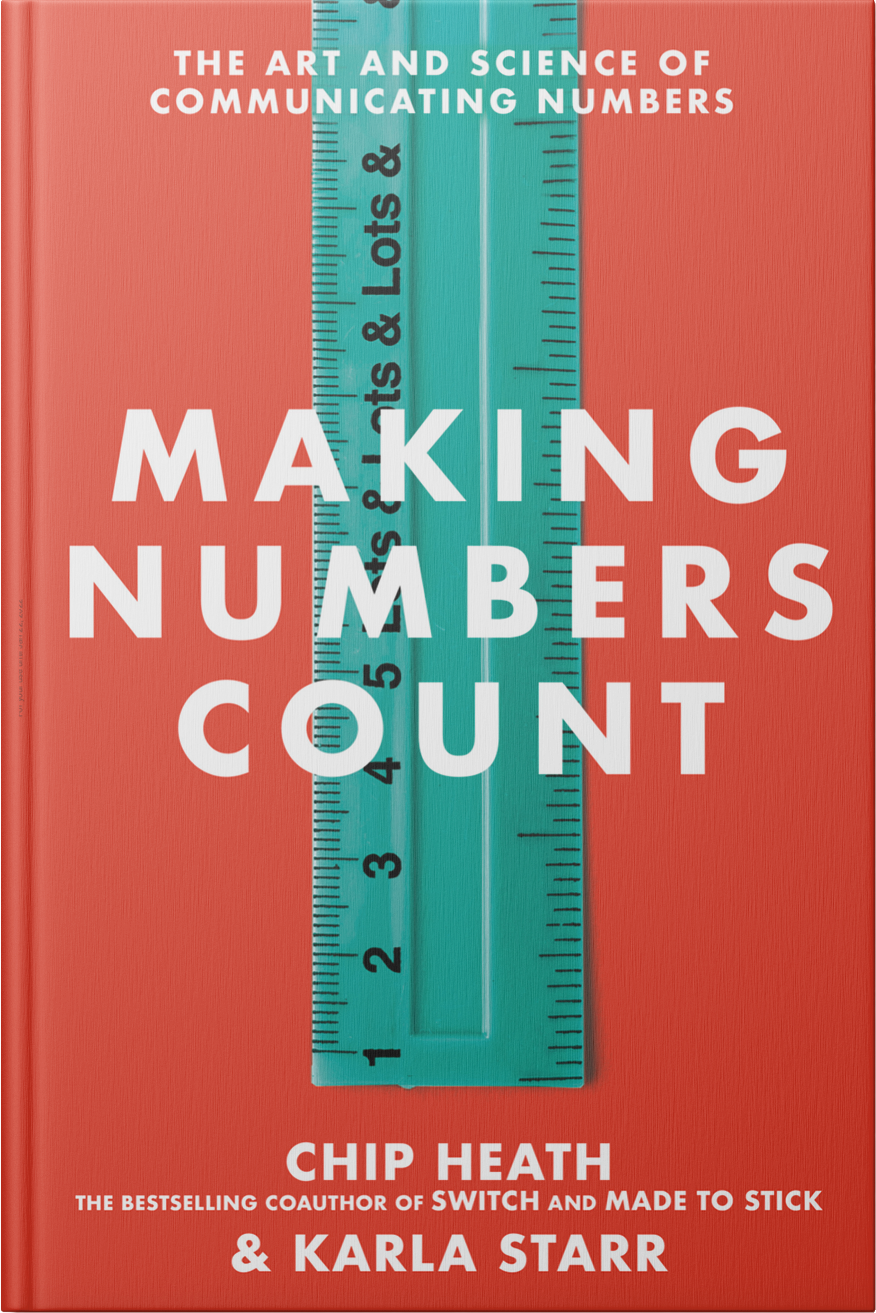
Authors: Chip Heath and Karla Starr Book review by Melissa Braaten According to COABE’s Educate and Elevate campaign, the U.S. has about 75 million adults considered “low-skilled” in numeracy. 75 million is a large number. But how large? How are we supposed to feel about this statistic? How can we wrap our minds around what it means for our own state, city, or program? We might consider that 75 million is almost twice the population of California. » Read more

by Sarah Lonberg-Lew Welcome to the latest installment of our monthly series, “Will This Be on the Test?” Each month, we’ll feature a new question similar to something adult learners might see on a high school equivalency test and a discussion of how one might go about tackling the problem conceptually. Welcome back to our continuing exploration of how to bring real conceptual reasoning to questions students might encounter on a standardized test. Usually when we explore a test-like question in this column, » Read more

by Jean Merriam My K-12 experiences as a math student were ideal: interesting and challenging enough to push me to progress, but not so overwhelming and frustrating as to derail me, like so many other math students. Calculators were not used back in my day (I know I’m dating myself), so students like me had to learn strategies and look for patterns, links, and relationships in the math. Today this would be called a combination of rigor, » Read more

by Sarah Lonberg-Lew Welcome to the latest installment of our monthly series, “Will This Be on the Test?” Each month, we’ll feature a new question similar to something adult learners might see on a high school equivalency test and a discussion of how one might go about tackling the problem conceptually. Welcome back to our continuing exploration of how to bring real conceptual reasoning to questions students might encounter on a high school equivalency test. » Read more

Photo by Ron Lach from Pexels by Sarah Lonberg-Lew I have been playfully accused on many occasions of seeing math in everything. I’m not sure it is always meant as a compliment, but I take it as one. I do see math everywhere, but the math that I see often doesn’t look like the math found in textbooks, traditional curricula, or even sometimes non-traditional curricula. The reason I see math everywhere is that I have a very broad idea of what math is. » Read more

by Sarah Lonberg-Lew Welcome to the latest installment of our monthly series, “Will This Be on the Test?” Each month, we’ll feature a new question similar to something adult learners might see on a high school equivalency test and a discussion of how one might go about tackling the problem conceptually. Welcome back to our continuing exploration of how to bring real conceptual reasoning to questions students might encounter on a high school equivalency test. » Read more
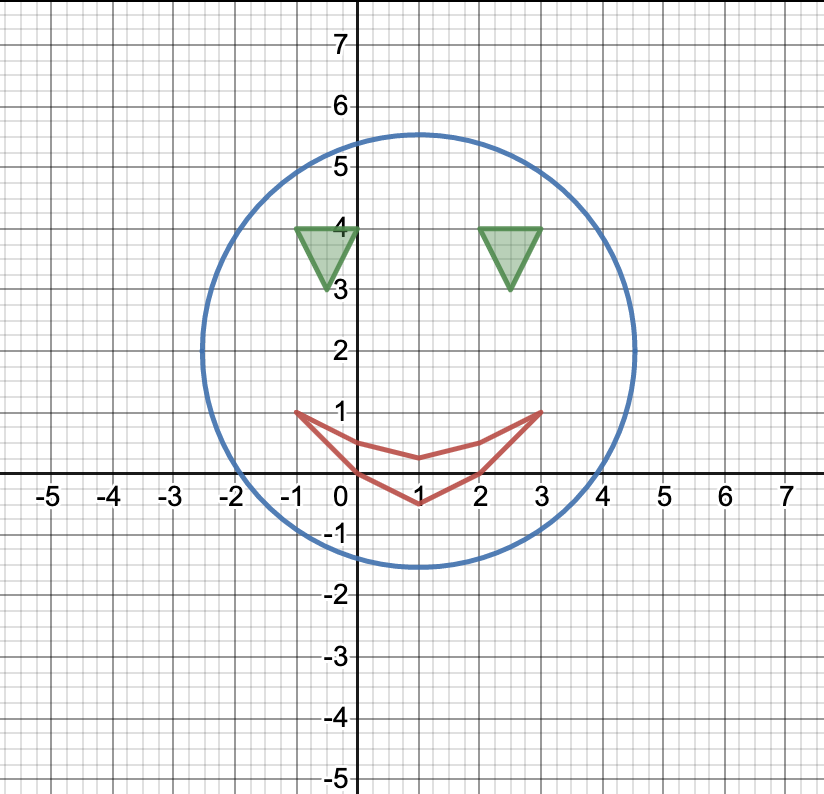
by Sarah Lonberg-Lew & Mark Trushkowsky In December of 2021, we (Sarah Lonberg-Lew and Mark Trushkowsky) embarked on a project to create a piece of art to submit to the Desmos Global Art Contest. Here is a still image of our submission: Click here to see it in all its animated glory. (And try clicking on some of the stationary objects for a little bonus.) Desmos is an online platform for learning, » Read more

by Sarah Lonberg-Lew Welcome to the latest installment of our monthly series, “Will This Be on the Test?” Each month, we’ll feature a new question similar to something adult learners might see on a high school equivalency test and a discussion of how one might go about tackling the problem conceptually. Welcome back to our continuing exploration of how to bring real conceptual reasoning to questions students might encounter on a high school equivalency test. » Read more
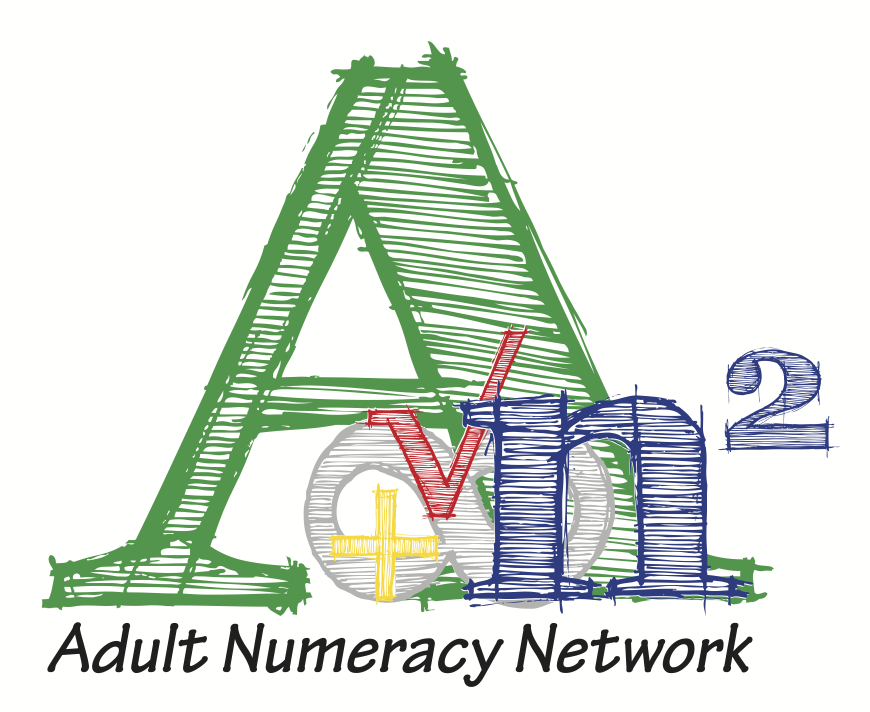
Are you experiencing the post-holiday season blahs, stuck in a math teaching rut? Or maybe you’ve made a new year’s resolution to try new strategies and activities with your adult students but need some ideas to get started? The Adult Numeracy Network was created to support and inspire teachers just like you! What is the Adult Numeracy Network? In their own words… The Adult Numeracy Network is the professional organization for math educators who work in adult education in the United States and a partner affiliate with the National Council of Teacher of Mathematics (NCTM). We are a community dedicated to quality mathematics instruction at the adult level. » Read more

by Sarah Lonberg-Lew Welcome to the latest installment of our monthly series, “Will This Be on the Test?” Each month, we’ll feature a new question similar to something adult learners might see on a high school equivalency test and a discussion of how one might go about tackling the problem conceptually. Welcome back to our continuing exploration of how to bring real conceptual reasoning to questions students might encounter on a high school equivalency test. » Read more

For this month’s blog, we’re doing something different! As this year closes, our team at the Adult Numeracy Center would like to offer our math wishes for you and your students in the new year. Enjoy! Find a new way of doing a math routine (like memorizing times tables) to challenge yourself and discover a new pathway to learning that routine. It could lead you to see math connections you never knew existed. For example, 7 x 8 is the same as 7(10 – 2), » Read more

by Sarah Lonberg-Lew Welcome to the latest installment of our monthly series, “Will This Be on the Test?” Each month, we’ll feature a new question similar to something adult learners might see on a high school equivalency test and a discussion of how one might go about tackling the problem conceptually. Welcome back to our continuing exploration of how to bring real conceptual reasoning to questions students might encounter on a high school equivalency test. » Read more
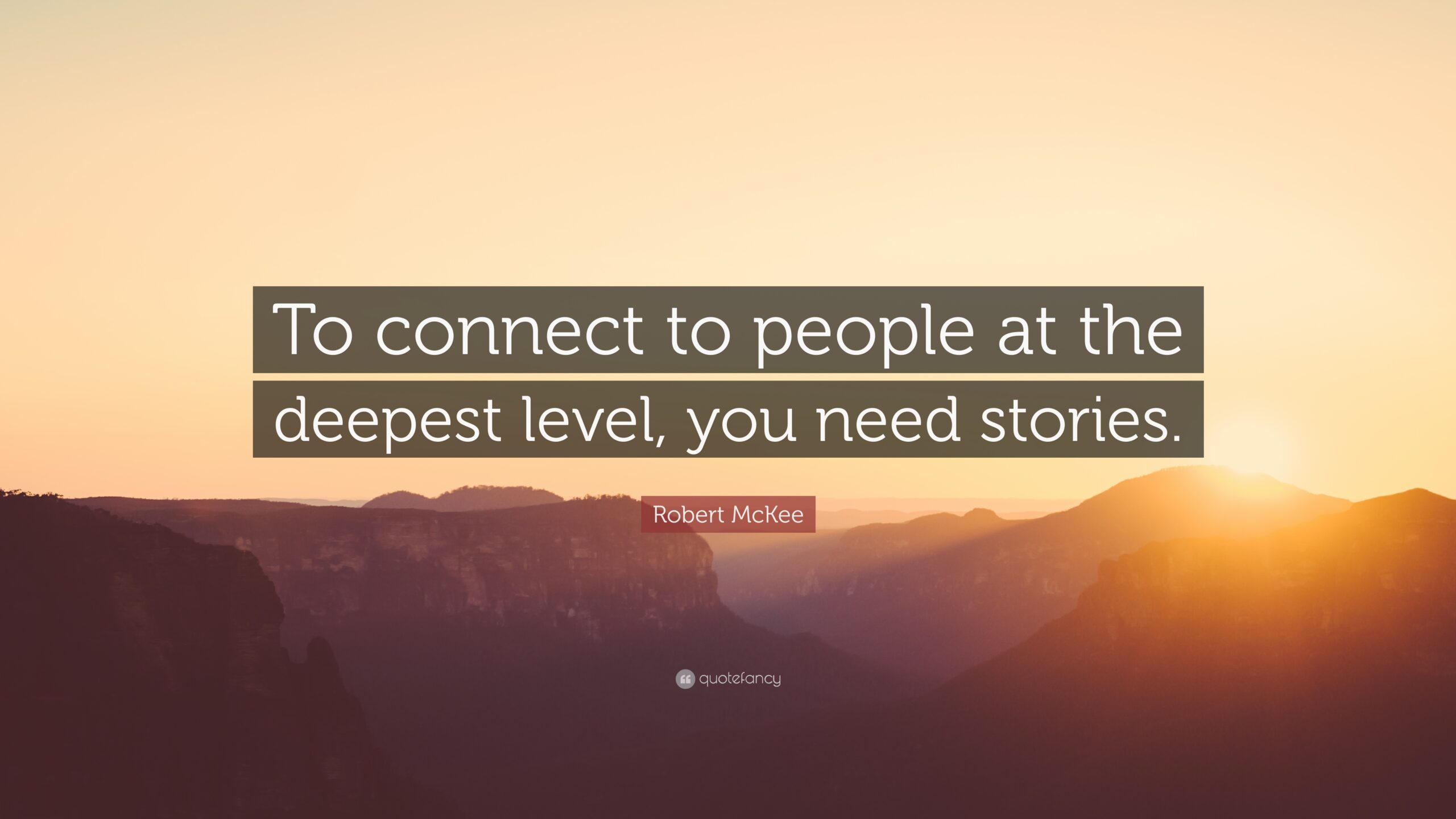
by Pam Meader In my quest to become more informed on diversity issues, I’ve viewed many webinars and attended many live online discussions. During an MLK celebration, the facilitator I was listening to asked, “Have you ever been othered?” (When you are othered, you are seen as less worthy of dignity and respect.) I reflected on that question and recalled an incident in my life when I had experienced the feeling of being othered. » Read more

by Sarah Lonberg-Lew Welcome to the latest installment of our monthly series, “Will This Be on the Test?” Each month, we’ll feature a new question similar to something adult learners might see on a high school equivalency test and a discussion of how one might go about tackling the problem conceptually. Welcome back to our continuing exploration of how to bring real conceptual reasoning to questions students might encounter on a high school equivalency test. » Read more

by Sarah Lonberg-Lew For all the years I’ve been teaching math, I’ve been finding or creating word problems or situations in context for my students to apply their reasoning to. So many questions require comparing two groups, and there’s always been one really easy go-to context for questions like that: men and women. For example, I might have asked something like: There are 20 men and 25 women enrolled in an adult education program. What fraction of the students are women? » Read more

by Sarah Lonberg-Lew Welcome to the latest installment of our monthly series, “Will This Be on the Test?” Each month, we’ll feature a new question similar to something adult learners might see on a high school equivalency test and a discussion of how one might go about tackling the problem conceptually. Welcome back to our continuing exploration of how to bring real conceptual reasoning to questions students might encounter on a high school equivalency test. » Read more

by Sarah Lonberg-Lew What does it mean to teach math conceptually? For me, it seems to be a moving target – each time I think I have it figured out, I discover that there are new understandings for me just around the bend. So I keep traveling down the road toward conceptual teaching, not knowing if there will ever be an end in sight. Here’s a peek into my journey along this road. What does your journey look like? » Read more

by Sarah Lonberg-Lew Welcome to the latest installment of our monthly series, “Will This Be on the Test?” Each month, we’ll feature a new question similar to something adult learners might see on a high school equivalency test and a discussion of how one might go about tackling the problem conceptually. Welcome back to our continuing exploration of how to bring real conceptual reasoning to questions students might encounter on a high school equivalency test. » Read more

by Aren Lew Procedural fluency, one of the three components of rigor (College and Career Readiness Standards for Adult Education, p. 45), often calls to mind the need for worksheets with the same kind of problem repeated over and over, or software that generates problems for students until they can get five right in a row. It carries an idea that students should practice procedures until they can be done automatically – without thinking – until it is no longer difficult to remember which step comes next. » Read more
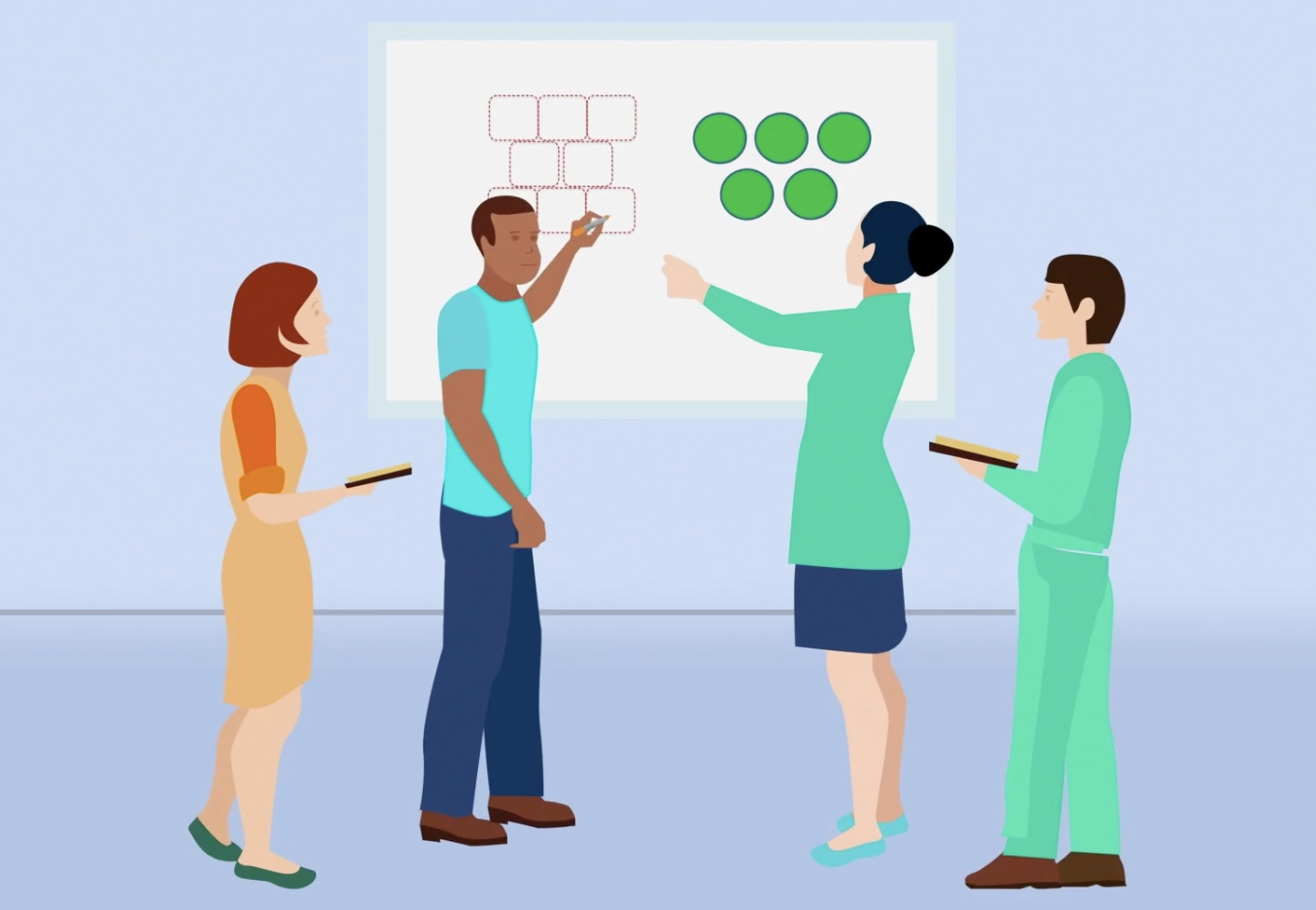
by Melissa Braaten What is numeracy? In general, the word numeracy is the math equivalent of literacy: the ability to flexibly and accurately use numbers, shapes, and data to communicate and solve problems. When students are first starting out learning reading and writing skills, we often refer to that level as “literacy-level.” Most programs who serve students at this level offer specific literacy-level classes to meet the unique content needs of literacy students, such as phonemic awareness and basic phonics. » Read more
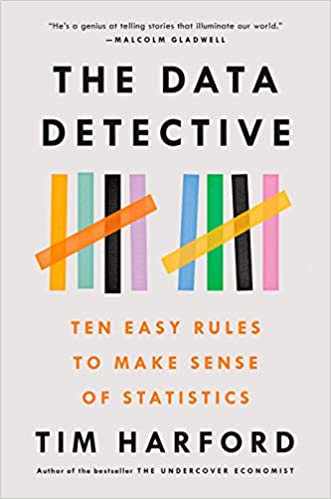
by Melissa Braaten There are three kinds of lies: lies, damned lies, and statistics.–Everyone and no one The quote above is so well-known that, like many popular sayings, it’s been attributed to a number of different people, and we don’t really know who used it first.1 How do you respond to hearing that quote? In his new book, The Data Detective: Ten Easy Rules to Make Sense of Statistics, » Read more

… did you know that you can still browse our archives to get your fix of adult numeracy goodness? We’ve got nearly 60 feature blogs plus Will This Be on the Test? challenges available for your reading pleasure. See you in September! » Read more

by Donna Curry Adults have so much fear and dislike related to math, much of it rooted in their prior school experiences. We as math teachers need to think about our role in why so many people feel this way about math, and what we can do to change this. Here’s one thought: lighten up! Maybe we need to be a little less perfectionist, and a lot more flexible. What got me on this blog topic? » Read more

by Sarah Lonberg-Lew Welcome to the latest installment of our monthly series, “Will This Be on the Test?” Each month, we’ll feature a new question similar to something adult learners might see on a high school equivalency test and a discussion of how one might go about tackling the problem conceptually. Welcome back to our continuing exploration of how to bring real conceptual reasoning to questions students might encounter on a high school equivalency test. » Read more

by Sarah Lonberg-Lew Welcome to the latest installment of our monthly series, “Will This Be on the Test?” Each month, we’ll feature a new question similar to something adult learners might see on a high school equivalency test and a discussion of how one might go about tackling the problem conceptually. In the April 2021 WTBotT blog, I talked about how the data domain encompasses many different kinds of reasoning – number sense, proportional reasoning, » Read more

by Donna Curry I have been in the field of education all of my adult life (and spent most of my childhood in school!). I’ve had about 40 years of experience working in adult education, including teaching in prisons, family literacy programs at libraries, workplace environments, and storefront community-based organizations. I feel like I’m fairly knowledgeable about teaching and learning. So, while I would never call myself an expert, I would say that I do have expertise in adult education. » Read more

by Sarah Lonberg-Lew Welcome to the latest installment of our monthly series, “Will This Be on the Test?” (You can find earlier installments as you scroll down the blog.) Each month, we’ll feature a new question similar to something adult learners might see on a high school equivalency test and a discussion of how one might go about tackling the problem conceptually. Let’s dig into some data this month. What skills and understandings do you think of when you think of the data domain? » Read more

by Donna Curry In math, seeking patterns is a helpful strategy. Once we think we’ve found a pattern, we can make a rule or generalization, or sometimes even a formula. In some life situations, however, we need to be more cautious about making rules when we think we see a pattern. Finding patterns helps to make learning easier and faster, but it can also lead to biases. All of us have biases of some kind. Some of them are innocuous (a preference for certain colors, » Read more

by Sarah Lonberg-Lew Welcome to the latest installment of our monthly series, “Will This Be on the Test?” (You can find earlier installments as you scroll down the blog.) Each month, we’ll feature a new question similar to something adult learners might see on a high school equivalency test and a discussion of how one might go about tackling the problem conceptually. Last month we looked at a question about a snail crossing a garden. » Read more
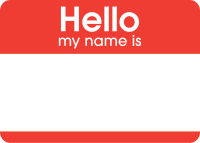
Just what is in a name? Inspiration for fun math conversations and activities! Our one-in-a-million Sarah Lonberg-Lew shares how in our latest #adultnumeracy blog at https://adultnumeracyatterc.wordpress.com/2021/02/08/whats-in-a-name-having-fun-with-data @MAAdultEd @coabehq @adultnumeracy1

by Sarah Lonberg-Lew Welcome to the latest installment of our monthly series, “Will This Be on the Test?” (You can find earlier installments as you scroll down the blog.) Each month, we’ll feature a new question similar to something adult learners might see on a high school equivalency test and a discussion of how one might go about tackling the problem conceptually. I have heard an argument made that it’s not worth spending time teaching fractions in adult ed classes. » Read more
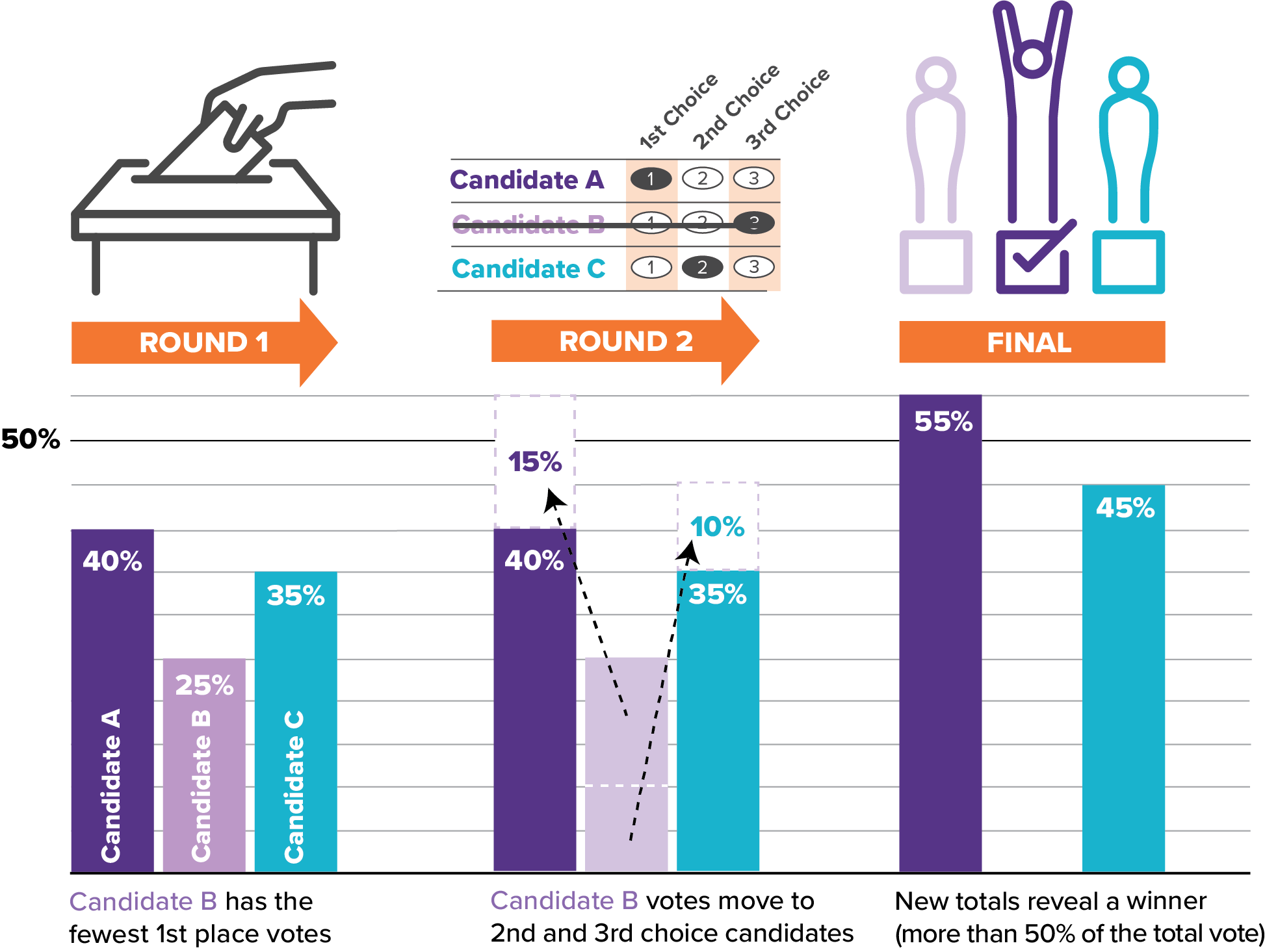
by Donna Curry Imagine that it’s the end of the school year and you’re planning a class celebration with food and drinks. You ask your students to choose which beverage they’d prefer: juice, water, or soda. The students respond as follows: So, you decide to go with soda for everyone since more students preferred that to juice or water. During the party, you realize that less than half of the students drank any soda! » Read more

by Sarah Lonberg-Lew Welcome to the first installment in 2021 of our monthly series, “Will This Be on the Test?” Each month, we’ll feature a new question similar to something adult learners might see on a high school equivalency test and a discussion of how one might go about tackling the problem conceptually. (You can find earlier installments as you scroll down the blog.) I learned a lot of rules in math class, and when I started teaching math, » Read more
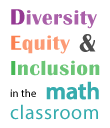
by Pam Meader In my previous blog, I mentioned being consumed with watching countless webinars on topics of diversity, equity, and inclusion. Recently, I attended one sponsored by SABES with Dr. Gholdy Muhammad, author of Cultivating Genius, An Equity Framework for Culturally and Historically Responsive Literacy. Her thoughtful words helped me to better understand approaches for addressing diversity, equity, and inclusion in our math classrooms. » Read more

by Sarah Lonberg-Lew Welcome to the fourth installment of our monthly series, “Will This Be on the Test?” Each month, we’ll feature a new question similar to something adult learners might see on a high school equivalency test and a discussion of how one might go about tackling the problem conceptually. (You can find earlier installments as you scroll down the blog.) This month let’s dive into one of my favorite types of problem to see on a test – an algebra story problem. » Read more

by Donna Curry I was using a recipe that I had gotten from my cousin in Germany. The recipe called for 200 mL of milk. I wanted to know what that was in cups so I Googled the information. Here’s what I found: To calculate 200 Milliliters to the corresponding value in cups, multiply the quantity in milliliters by 0.0042267528198649 (conversion factor). In this case we should multiply 200 milliliters by 0.0042267528198649 to get the equivalent result in cups: 200 milliliters x 0.0042267528198649 = 0.84535056397299 cups. » Read more

by Sarah Lonberg-Lew Welcome to the third installment of our monthly series, “Will This Be on the Test? (You can find earlier installments as you scroll down the blog.) Each month, we’ll feature a new question similar to something adult learners might see on a high school equivalency test and a discussion of how one might go about tackling the problem conceptually. There are few topics that provoke anxiety and frustration in learners and teachers like fractions. » Read more

by Pam Meader So much has happened in so little time. First the COVID-19 pandemic hit and shortly after school buildings were closed and classes went virtual. Getting up to speed on the latest technologies and transforming face to face class lessons to virtual was a huge task for teachers. The killing of George Floyd followed, and our nation was ripped apart again over racial inequities. Teachers are grappling with how to make changes in their practice and classroom culture, » Read more

by Sarah Lonberg-Lew Welcome to the second installment of our new monthly series, “Will This Be on the Test?” (If you missed the first blog, check it out here.) Each month, we’ll feature a new question similar to something adult learners might see on a high school equivalency test and a discussion of how one might go about tackling the problem conceptually. There’s almost always more than one way to tackle a math problem. » Read more

by Sarah Lonberg-Lew Welcome to the first installment of our new monthly series, “Will This Be on the Test?” Each month, we’ll feature a new question similar to something adult learners might see on a high school equivalency test and a discussion of how one might go about tackling the problem conceptually. There are lots of good reasons to study math – it better prepares students for the numbers and relationships they encounter in life and at work, » Read more
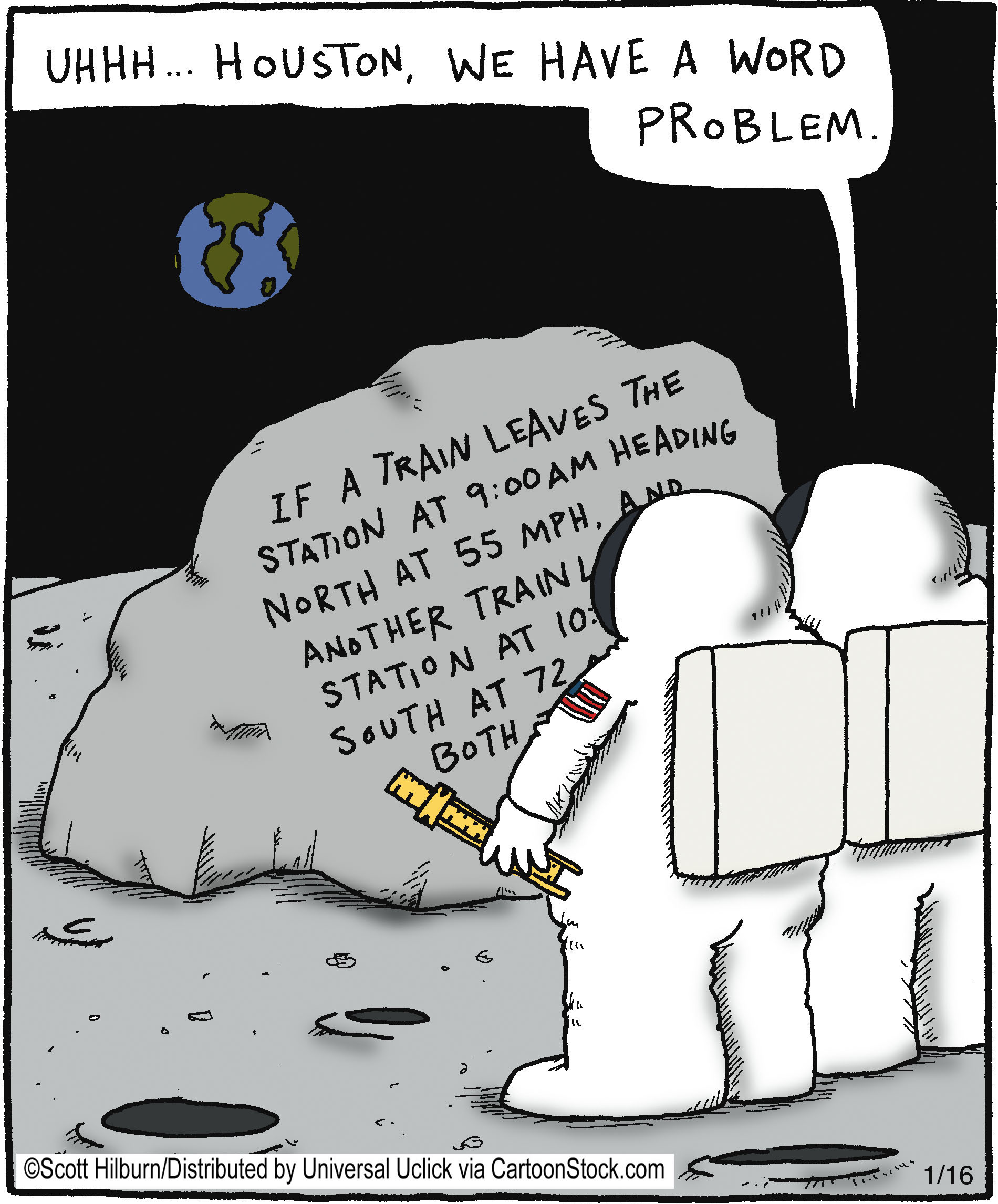
by Heidi Schuler-Jones In today’s classroom, we know that it is not enough to simply teach math content and skills. Students also need to develop facility with technology tools. Using a traditional word problem as a starting point, here are some ideas for doing so. First, think about ways to ‘open up’ a word problem: Limit the information provided to students and instead have them find information based on their own interests.Allow students to make choices on figures, » Read more

by Melissa Braaten If you had asked me a few months ago about my favorite tools to use in the math classroom, I would have talked about how much I love my square inch tiles and the value of group work. I would have thought about how hard I work on my questioning techniques so I can check in with each group, try to assess where they are with the problem, and to provide just the right push to move them forward. » Read more

by Donna Curry For too many of us in the United States, the definition of literacy is simply the ability to read and write. We supposedly include numeracy in that definition, but it is usually overlooked. Teachers will often say things like, “I’m a literacy specialist” or “I teach literacy.” When we hear those terms, we don’t assume that they are also teaching numeracy. In fact, “literacy” is often a code word meaning, “I don’t touch anything math-related.” So, » Read more
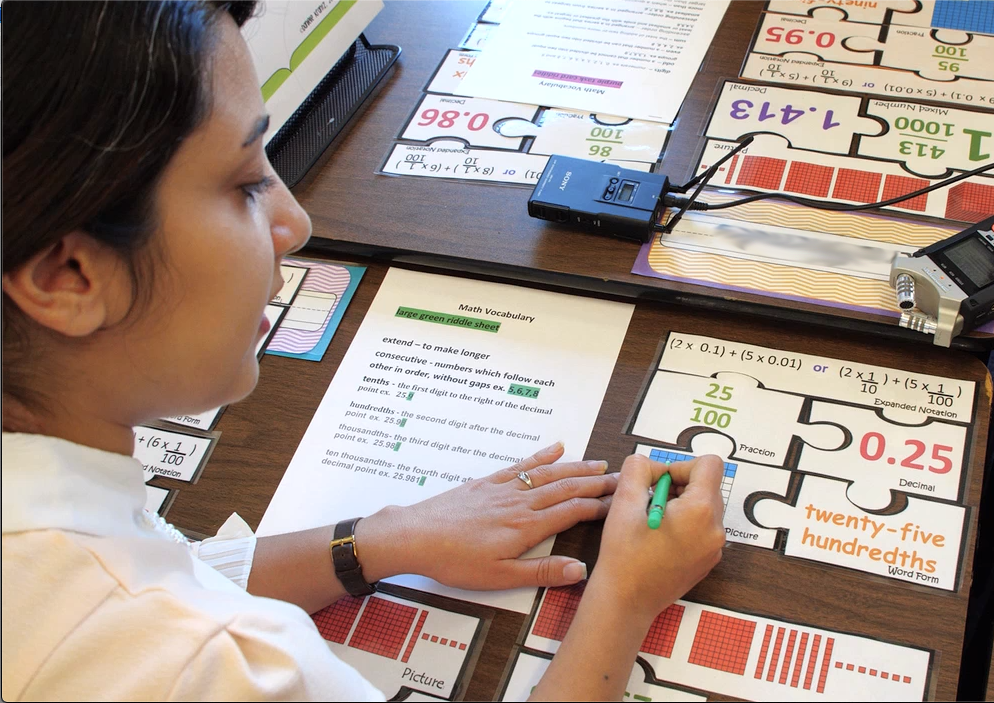
This article also appears on the World Education blog here: https://edtech.worlded.org/making-math-meaningful-in-the-esol-classroom/ by Sherry Lehane Math in ESOL Coursebooks Did you ever start a home do-it-yourself project and suddenly realize you were in over your head? Maybe you didn’t have the carpentry skills or the right tools to do the project? This is how I felt many years ago when I attempted to teach math to my ESOL learners, many of whom had very little formal education. » Read more

by Sarah Lonberg-Lew When I was about 8 years old, I went on a “date” with my best friend. My mother dropped us off at a restaurant with some money and we ordered burgers, fries, and ice cream sundaes, just like a couple of grown-ups. Everything went fine until we got the bill and realized we were supposed to leave a tip and neither of us had learned how to do percents! Luckily, the kind waitress helped us work it out. » Read more

by Melissa Braaten We all know that first impressions matter. Students start forming an impression of their program, class, and teacher from their first interactions during intake, which usually involves some sort of assessment for the purposes of class placement. Many standardized intake assessments involve a student sitting by himself, answering traditional, procedural math questions that have only one correct answer. This experience can reinforce the individualistic, procedurally-focused math experiences that students have had in the past, » Read more

by Connie Rivera I was sold on the idea of using free Desmos Classroom Activities as soon as I tried one myself. Why? Because I discovered math ideas I didn’t already know just by working through an activity! Using tech tools in class can’t be technology for technology’s sake. Our instruction must be focused on the mathematical understandings we want students to develop. Only then should we search for the activities that help students discover those ideas. » Read more

by Donna Curry That’s a good question: what good is estimation? After all, aren’t tests are just looking for the right answer? Let’s explore this idea, but first try this quick test-like question: Were you able to immediately find the answer because you knew that 2 x 80 is 160? Or did you get out your calculator to figure out the answer? If the latter, you might be one of many who could use some help with number sense – something that estimation skills help build. » Read more

by Sarah Lonberg-Lew Mathematics and its history are rich with surprising events and results. Here are ten mathematical tidbits and stories you won’t believe! (And some of them you shouldn’t believe because they aren’t all true — see if you can figure out which ones are! The answers are at the end.) 1. Pythagoras (he of the famous theorem) and his followers were so upset by the discovery of irrational numbers that they drowned the man who discovered them. » Read more

by Sarah Lonberg-Lew At the Adult Numeracy Center at TERC, we are big fans of the work of Stanford Professor Dr. Jo Boaler. Dr. Boaler has taken the groundbreaking work of psychologist Carol Dweck on “mindset” and built an organization aimed at revolutionizing the way math is taught. Her organization, YouCubed.org, promotes teaching math as an open, visual, creative subject, focusing on building strong conceptual understanding over ability to reproduce procedures quickly. » Read more

by Melissa Braaten (opinions in this blog are those of the author and not of the SABES Mathematics and Adult Numeracy Curriculum and Instruction PD Center) PinkStock Photos, D. Sharon Pruitt [CC BY 2.0 (https://creativecommons.org/licenses/by/2.0)] Parenting is hard. I just became a new parent a few months ago. I knew it was going to be hard before the baby even came the first time I picked up an instruction manual and learned how to strap a baby in a car seat. » Read more
by Sarah Lonberg-Lew Problem solving is a lot more than reading a short story problem and performing one or two calculations. Real problem solving is what happens when you can’t see a clear path to a solution and have to be creative. There are many great problem-solving strategies: look for a pattern, examine a simpler case, draw a picture, model with an equation, etc. Also on this list is the humble guess-and-check, aka guess-check-and-revise. For some reason, » Read more
This post originally appeared in the December 2018 edition of Reflect & Connect: The Reflective Practitioner, managed by our colleagues at the SABES ELA Center. This is a companion blog post to “The Case for Statistical Literacy Across Content Areas”. by Melissa Braaten Interested in incorporating statistics into your content classes, but not sure what this might look like in practice? There are ways to get students involved with collecting and interpreting their own data, » Read more
This post originally appeared in the October 2018 edition of Reflect & Connect: The Reflective Practitioner, managed by our colleagues at the SABES ELA Center. by Melissa Braaten In the academic sphere, statistics can sometimes seem like the odd one out. Most of us associate statistics with math, although it is far more dependent on context for meaning than other domains of math. For example, a graph of population data with the context removed is just a meaningless squiggle. » Read more
by Sarah Lonberg-Lew Whether they’re called word problems, story problems, or problems in context, they usually amount to the same thing – a short story about a character who for some reason needs to know how long it will take to do a task or how much it will cost to go on ten rides at the fair. Why do our students need to know how to answer these questions? The clearest reason seems to be that they will have to do so on the high school equivalency test that is standing between them and their next step, » Read more
A huge international study of adult literacy and numeracy skills (Program for the International Assessment of Adult Competencies, known as PIACC) showed that in the U.S., 30% of adults had numeracy skills at or below level 1, which means they could only perform the most basic, single step, whole number operations.1,2 This could impact the lives of adults in many ways, but one that has recently caught my attention is the role of numeracy in health care, » Read more
by Sarah Lonberg-Lew A student joined my class in the middle of April and told me she absolutely had to achieve her high school equivalency by the end of June. “I can. I must. I will,” she said to me. She is willing to do whatever it takes – get a tutor, watch videos about algebra on YouTube, get her high school-aged daughter to help her. She has grit and determination and has been told that this will get her to her goal. » Read more
by Melissa Braaten Calculators are something that both teachers and students seem to have strong opinions about. Some cling to them like a magical tool that will solve all of their math woes, while others blame them for the decline in mathematical fluency. I don’t find either of these attitudes helpful. A calculator can be a useful and powerful tool, but only in the hands of someone who knows how and when to use it. As a teacher, » Read more
by Melissa Braaten The end of the calendar year is the season for HSE testing, so I’ve had a lot of students looking for test prep recently. Every practice test seems to include at least one Pythagorean Theorem question with an accompanying diagram, like the one below: Sarah has to drive from her home to the post office, then on to the grocery store before she returns home. She will travel on the roads shown below. » Read more
by Sarah Lonberg-Lew & Melissa Braaten One of the biggest challenges we face teaching math in adult education classes is having students who vary widely in their readiness, prior knowledge, and reasoning ability. Ask a question of your whole class and some students will have their hands up with the answer before others have made sense of the question. The situation often feels intractable – how can you keep all your students in that sweet spot of being challenged without being frustrated, » Read more
by Melissa Braaten It’s common knowledge that many adult students struggle with word problems – which, incidentally, make up the majority of the questions they will be asked to answer on high stakes HSE exams. Since word problems bring together both language and mathematical reasoning, they require students to use and integrate several skill sets. Deficits in any of these skills can cause students to get lost. A lot of literature on word problems involves helping students build operation sense (the ability to know what the operations can look like in the real world in order to select the correct ones to use), » Read more
by Sarah Lonberg-Lew As a math teacher in adult education classrooms, I have never had the experience of having a class of students who had similar educational backgrounds and ability levels. In fact, I don’t think I’ve ever met a math teacher of adult learners who has had that experience. And yet, when I plan my curriculum and lessons, I write one set of learning objectives for all my students. But how can I expect them to arrive at the same place at the end of a lesson when their starting points are so vastly different? » Read more
by Melissa Braaten Effective teaching of mathematics uses evidence of student thinking to assess progress toward mathematical understanding and to adjust instruction continually in ways that support and extend learning. National Council of Teachers of Mathematics, 2014[1] The quote above is a good description of “formative assessment” in mathematics, in which assessment information is sought for the purpose of informing and modifying instruction. Paying attention to the work our students are handing in can provide some of this valuable “evidence” of student thinking. » Read more
by Ann Pellagrini I’ve always had a love/hate relationship with math. In school, even though I was in advanced math classes, I struggled to grasp the concepts because teachers didn’t connect what we were learning to real-world applications. To this day, the only things I remember about geometry are the Escher drawings in the book. Consequently, if there’s someone in the room who seems to know more or has some kind of credential like being a math teacher or engineer, » Read more
by Connie Rivera You may have seen one version or another of Did You Know?, a video that went viral in 2007. I’ve seen it more than once during presentations since WIOA regulations came out. The key take away for me was the idea presented in the video that “We are currently preparing students for jobs that don’t yet exist, using technologies that haven’t been invented, in order to solve problems we don’t even know are problems yet.” How can we teach our students in such a way that they will be prepared for something we don’t even know about yet? » Read more
by Sarah Lonberg-Lew In a Thanksgiving episode of the popular nineties sitcom Friends, the character Rachel attempts to make a traditional English trifle. The layers include: ladyfingers, jam, custard, raspberries, beef sautéed with peas and onions, bananas, and whipped cream. As she lists them, the other characters’ reactions go from appreciative to incredulous to disgusted, and the mention of the beef layer gets a big laugh from the studio audience. Upon investigating, her friends discover that the pages of the magazine from which she got the recipe were stuck together and she had in fact made half a trifle and half a shepherd’s pie. » Read more
For this installment we’re featuring a special guest blog by Sister Margaret Lanen of Notre Dame Education Center in South Boston (http://www.ndecboston.org) When I was asked to teach a math class once a week this year, I was most willing. I taught algebra, geometry and advanced math in high school for many years and thought it would be easy to teach basic math to new English language learners. Little did I think that the language used in math would be such a stumbling block to ESOL students! » Read more
by Melissa Braaten When I am trying to prioritize my curriculum and to build buy-in from my students, I am always trying to think about how to make the math relevant to them. But what does relevance mean? Is it relevant for someone to learn math that they might use someday in a career they are considering? Are the specific algebraic procedures what they will use in the future, or the deeper algebraic reasoning and problem solving that they develop in the process? » Read more
by Sarah Lonberg-Lew NOTE: This blog is a companion piece to an article Sarah wrote earlier this year called “What’s Right with Wrong Answers?” As much as students seem to hate word problems, there is no way around the fact that they are a necessary part of the curriculum. Setting up and solving word problems is a vehicle for learning to analyze information and reason logically. It is an essential skill for taking high school equivalency test and for success in college and real world situations requiring math —this in spite of the fact that the contexts for these problems are often silly and occasionally absurd. » Read more
by Connie Rivera I am an avid numeracy blog reader. As I read about the experiences and ideas of others, I find I’m challenged to think deeply about decisions I am making while teaching in my own classroom. The blogs I read inspire me with new ideas on a regular basis. Lately, I’ve noticed ideas from different sources that are all ways to change how problems are presented. All of these teaching strategies produce a slightly different way of investigating a problem, » Read more
by Sarah Lonberg-Lew I used to feel awkward when my students came up with wrong answers. I didn’t want to embarrass or discourage them, so I felt that the kindest thing to do was to say, as briefly as possible, “That’s not quite right – try again.” I even avoided using the word “wrong”. However, in my rush to save my students from potential bad feelings, I missed an opportunity to find what was good and valuable in their reasoning. » Read more
by Donna Curry Every math class, no matter how you try to ensure some homogeneity, is a mix of levels. Some students are good at decimals, others only have operations with whole numbers down pat, while some students can reason and estimate well but struggle with procedures. So, what can you do? Nope, the answer is not to completely individualize instruction where students work independently on decontextualized skills. Instead, you still want to encourage them to work on more challenging situations, » Read more
by Pam Meader The Career and College Readiness Standards have shifted the way we teach mathematics to our students. One change is the importance of using correct mathematical language for both our students and our teachers. In Mathematical Practice 1, students need to make sense of the mathematical language in order to problem solve. With Mathematical Practice 3, students need math language to discuss their ideas or critique their classmates’ ideas. With Mathematical Practice 6, students need to use the mathematical language in writing as well as in their heads. » Read more
by Donna Curry From my elementary school history class, I remember, “In 1493, Columbus sailed the big blue sea.” From my science class, I memorized the colors of the spectrum because I remember ROY B GIV (Red, Orange, Yellow, Blue, Green, Indigo, Violet). And, from my math classes, I can still recall PEMDAS – Please Excuse My Dear Aunt Sally… or was that PFMNS (Please Forgive My Niece Sally)? Let’s see: (6 + 4)/5 + 3(2) – 1. » Read more

by Melissa Braaten I am an adult education teacher, therefore I never have enough time with my students. I want my students to be able to problem solve a wide range of mathematical problems, but I also want to ensure that they leave me with a deep conceptual understanding of the material they have studied. To this end, I find that I am always trying to prioritize my math curriculum to figure out which core concepts or big ideas will make the most of our precious and limited time. » Read more
by Pam Meader About 10 years ago, various documents such as the NCTM Standards and recommendations of the National Research Council were urging more math communications. I decided that I was going to incorporate some writing into my math classes. I wasn’t sure how to start, so I tried a variety of approaches in all my math classes. However, new research has recently been published that lends clarity to the type of writing that occurs in math classes and its benefits. » Read more
by Connie Rivera In my class, I regularly ask students to: Match to each other cut outs of different representations such as: a graph, table, or equation matched to a situation; an array matched to an expression; or a drawing matched to a fraction, decimal or percent. Sort into categories shapes, graphs, or different visual and symbolic representations of math concepts. Place on a number line, whole numbers, fractions, decimals, and percents as well as representations of these as groups of objects, » Read more
by Melissa Braaten “Open questions” are getting a lot of attention these days in math education, and for good reason. Unlike more traditional “closed” questions, which have one right answer, open questions allow for many possible correct answers, and/or many possible ways of approaching the problem. Open questions often invite deeper mathematical reasoning than closed questions, more closely replicate how the math is used in real life, and can be an excellent strategy for differentiating instruction in an adult education classroom. » Read more
by Connie Rivera I was a participant in a training recently where we were given the tools to “discover” one of the not-as-common formulas provided on the Formula Sheet for the Hi-SET test. After some exploration experiences, we were asked to write an equation that showed the relationship between the variables that could be used to find the area of any such shape. Many of the other teachers already knew the formula and were able to link together the ideas to explain how to get the most common representation of the formula (the one on the Formula Sheet). » Read more
by Donna Curry The other day I was online, looking for an explanation about why a particular math procedure works. I knew how to do the problem, but I wanted to know why it worked. It took me quite a while to discover the answer, even though I tried some of my favorite go-to sites right away. In the process of looking for an answer, I realized that there are MANY sites that I could go to for help if I didn’t remember the procedure, » Read more
by Connie Rivera A participant in a recent training told us that she felt overwhelmed by being given so much new information during the course and not knowing where to start. It made me remember the presentation and activity where I was first exposed to math as “understanding and making connections” rather than “memorizing and following the rules”. It hit me like a powerful wind that blew me off course. It made me look at a whole new, » Read more
by Martha Merson Do you read to your kids or grandkids at bedtime? If so, you may be interested in a fun new twist that some families have incorporated into their nightly routines — one that may have academic benefits. At least two studies have found that kids whose parents engaged them in math-related story and puzzle activities performed better on tests. Both studies focused on families using Bedtime Math (www.bedtimemath.org) resources. Bedtime Math, a New Jersey nonprofit organization, » Read more
by Melissa Braaten When you walk into a vacant position at a new school, replacing the last beloved math teacher, you are an unknown quantity, and the unknown can be suspect. I was surprised at how intense the resistance was when I started teaching at a new school this year. Math is my specialty, and I had been teaching in a similar program for five years, successfully implementing a math curriculum for adult students, which emphasizes conceptual understanding, » Read more
by Pam Meader “Many of life’s failures are people who did not realize how close they were to success when they gave up.” — Thomas Edison This summer I was watching my two year old granddaughter try to pull herself up into a chair. As hard as she tried, she couldn’t figure out how to get her foot out to sit down. She became frustrated and started to cry and of course, my instinct was to run over and do it for her. » Read more
by Martha Merson An adult ed teacher whom I respect very much once told me she avoided presenting or focusing on problems where students would see flawed reasoning leading to incorrect solutions. Her stance was a challenge to the idea of showing students incorrectly solved worked problems as a way to highlight common misconceptions. In the EMPower series students periodically encounter a practice page or activity that presents two opposing views. For example, » Read more
by Melissa Braaten One of the hallmarks of the adult education classroom is the need to differentiate instruction to a spectrum of learners. I have the good fortune to work in a program with the capacity to level students for math and reading separately; many adult education teachers find they are teaching a math class of learners who were placed based on their reading level, which means the spread of mathematical ability is extremely wide. Even in my slightly more homogenous classroom, » Read more
by Pam Meader Last week I had to visit a dental lab to match a crown to my other teeth. During this visit, the technician asked what I did for work, and when I told her I was a math consultant she immediately said, “Oh, I am not good at math but I love science.” I wondered to myself how someone who loves science couldn’t be good at math? Science and all its data collection and analysis is clearly related to math. » Read more
by Donna Curry Math and reading are usually treated very differently in the classroom: There is no reason that math should be taught in this way, especially if we want students who can reason, solve problems, and have mathematical discussions wherein they justify their thinking; no reason except that other models are not always readily available, so reverting to the familiar is easiest… and we don’t always know what is possible in a math class. » Read more
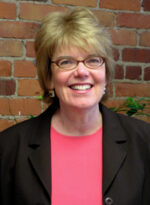
by Pam Meader For the past few weeks, I have been collecting and organizing pictures of Mary Jane for a celebration of her life at COABE in Denver. This process has made me appreciate even fuller the legacy of the feisty blonde, Mary Jane Schmitt. A lyric from the song “Maria” in the The Sound of Music keeps resonating in my head: “How do you hold a moonbeam in your hand?” That was Mary Jane, » Read more
by Melissa Braaten You’ve probably heard (or will hear very soon) about the “shift” towards increased rigor in the new College and Career Readiness Standards for Adult Education (CCRSAE). In the context of the math portion of the CCRSAE, the word rigor has a specific definition: increased rigor involves equal emphasis on developing conceptual understanding, procedural fluency, and application. Here I want to focus on an important part of developing procedural fluency: comfort and flexibility with mathematical notation. » Read more
by Pam Meader (This is continuation of a prior blog post. Scroll down to read Part 1 first.) After taking the Teaching Reading in the Content Area course, I started to become interested in making math more interactive. In the 70s, we used to have two days off in October for teacher training when we would devote time to improving our craft. I don’t remember much about those sessions, but do remember purchasing a book called Math Labs that offered various activities to make the math classroom interactive. » Read more
by Pam Meader Today the snow is falling outside and we are all hunkered down for a big storm. For me, it is a time to be reflective of where I have been on this journey called math education. A few weeks ago, Marilyn Burns, a well-known math educator in the K-12 world, started a blog and her first entry was about her experience as a math teacher. I couldn’t help but connect to her story, » Read more
by Judy Storeygard Many years ago, a friend of mine was studying for a test that her employer required for a promotion. Unfortunately, she had a real block about math, especially subtraction. She had asked if my son, at the time a high school student who liked math, would help her. My first thought was, “Oh no, but it comes easily to him. How will he be able to help her?” Luckily, my fear was unfounded. » Read more
by Donna Curry I was thinking the other day about a teacher who said to me, “My job is to help students just pass the ‘test’ so that they can get a job.” I got to thinking about having to pass a test in order to be able to “do” something, and the act of driving came to mind. Can you imagine if we had people pass a driver’s test only so that they could get behind the wheel? » Read more